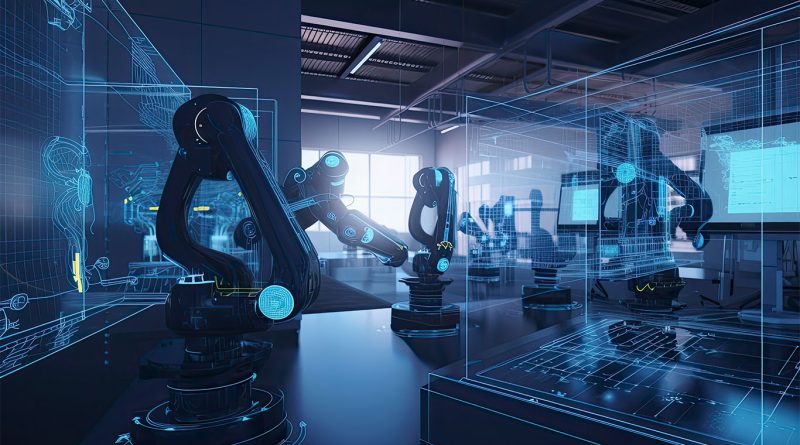Revolutionizing Manufacturing: Top 5 AI Tools You Can’t Afford to Ignore
The manufacturing industry is constantly seeking ways to improve efficiency and quality, and one of the most promising technologies for achieving this is artificial intelligence (AI).
AI tools can help manufacturing companies automate tasks, reduce errors, and increase productivity. So, here are the top 5 AI tools that can help manufacturing:
1. Predictive Maintenance
Predictive maintenance is an AI tool that uses data analytics and machine learning algorithms to predict when equipment is likely to fail.
By analyzing data from sensors and other sources, this tool can detect anomalies and alert maintenance teams to potential problems before they occur. This not only helps avoid downtime but also reduces the cost of maintenance by only servicing equipment when it is necessary.
2. Quality Control
AI tools for quality control can analyze images and videos to identify defects and deviations from quality standards. These tools can help manufacturing companies improve product quality by identifying defects early in the manufacturing process, allowing for timely corrective actions.
AI-powered quality control tools can also help reduce the need for manual inspections, thereby saving time and labor costs.
3. Supply Chain Optimization
Supply chain optimization tools use AI to optimize the flow of goods and services through the supply chain. These tools can help manufacturing companies reduce lead times, improve inventory management, and increase customer satisfaction by ensuring timely delivery of products.
By using predictive analytics and machine learning algorithms, these tools can also help companies identify potential disruptions and take proactive measures to avoid them.
4. Autonomous Robots
Autonomous robots are AI-powered machines that can perform tasks without human intervention. These robots can be used in manufacturing for tasks such as material handling, assembly, and quality control.
By using AI to guide their actions, autonomous robots can perform tasks more efficiently and accurately than humans, reducing errors and improving productivity.
5. Demand Forecasting
Demand forecasting is an AI tool that uses historical data and machine learning algorithms to predict future demand for products.
By accurately forecasting demand, manufacturing companies can optimize production schedules, reduce inventory costs, and improve customer satisfaction by ensuring that products are available when they are needed.
AI-powered demand forecasting tools can also help companies identify trends and patterns in customer behavior, allowing them to adapt to changing market conditions.
The integration of artificial intelligence (AI) tools is revolutionizing the manufacturing industry by enhancing efficiency, quality, and productivity. The top five AI tools outlined offer significant benefits for manufacturing companies seeking to stay competitive in today’s dynamic market landscape. By leveraging AI technologies, manufacturers can automate tasks, reduce errors, optimize processes, and make data-driven decisions, ultimately leading to improved performance and customer satisfaction.
